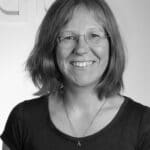Under the Icelandic Presidency of the Nordic Council of Ministers in 2019 the priority was set on youth, sustainable tourism, and the marine environment. This 3-year project is a contribution to sustainable tourism. The project aims to understand the perception of Nordic food, highlight the importance of local food in sustainable tourism, and gain insight into how climate change and trends can shape our future of food in tourism. The objective is to raise awareness of future challenges and opportunities related to food in tourism and provide strategic guidelines that support future actions and policymaking. Our vision is that visiting the Nordics should be about experiencing a place where people and the planet prosper in sustainable harmony and economic growth. Where eating and traveling in harmony with nature and local culture is a desirable lifestyle. Our contribution is not about the competitive advantage but about our drive for a sustainable future.
Merki: Tourism
NordMar Plastic RISK: Socioeconomic risks of plastic to the bioeconomy – Icelandic case study
The risks related to plastic on the bioeconomy are not only biological, toxicological and chemical, but also societal and economical. Influence of tainted opinion on the Nordic environment or Nordic production could influence tourism, marketing and general wellbeing. The aim of the NordMar PlasticRISK project is to evaluate the diverse impact and main socioeconomic risks related to marine plastic pollution on the bioeconomy of the Nordic countries using Iceland as a case study. Two of the main industries in Iceland, the fishing industry and tourism, are heavily dependent on the bioeconomy as well as clean and pristine environment. Economical risks, followed by tainting the environment with visual plastic debris and macroplastic as well as unclear status of microplastic, is estimated to be high due to increased environmental awareness of consumers and tourists, where the main focus of tourist arriving to Iceland is to experience pristine environment. Several actions are suggested such as to evaluate and improve the Icelandic system for recycling of used fishing gear, evaluate further marketing options and value of advertising low and responsible plastic use in these two main industries and increase education on environmental issues in the School of navigation.
Skoða skýrslu
NordMar Plastic RISK: Socioeconomic risks of plastic to the bioeconomy – Icelandic case study. Executive summary.
The risks related to plastic on the bioeconomy are not only biological, toxicological and chemical, but also societal and economical. Influence of tainted opinion on the Nordic environment or Nordic production could influence tourism, marketing and general wellbeing. The aim of the NordMar PlasticRISK project is to evaluate the diverse impact and main socioeconomic risks related to marine plastic pollution on the bioeconomy of the Nordic countries using Iceland as a case study. Two of the main industries in Iceland, the fishing industry and tourism, are heavily dependent on the bioeconomy as well as clean and pristine environment. Economical risks, followed by tainting the environment with visual plastic debris and macroplastic as well as unclear status of microplastic, is estimated to be high due to increased environmental awareness of consumers and tourists, where the main focus of tourist arriving to Iceland is to experience pristine environment. Several actions are suggested such as to evaluate and improve the Icelandic system for recycling of used fishing gear, evaluate further marketing options and value of advertising low and responsible plastic use in these two main industries and increase education on environmental issues in the School of navigation.
Skoða skýrslu
Sjálfbærni í staðbundinni matvælaframleiðslu og ferðaþjónustu. Málþing á Smyrlabjörgum 26.‐27. október 2011. Greinagerð / A seminar on local food production, tourism and sustainability
Málþingið Sjálfbærni ístaðbundinni matvælaframleiðslu og ferðaþjónustu var haldið á Smyrlabjörgum í október 2011. Markmið málþingsins var að kynna niðurstöður mælinga á sjálfbærni í Hornafirði sumarið 2011, kynna tengd verkefni og fá fram umræður um það hvernig staðbundin matvælaframleiðsla geti stuðlað að sjálfbærni í ferðaþjónustu, hvernig standa skuli að markaðssetningu staðbundinna matvæla og fá fram hugmyndir að aðgerðum og verkefnum sem stuðla að aukinni sjálfbærni í smáframleiðslu og ferðaþjónustu á Íslandi. Á málþinginu voru 11 framsöguerindi. Hér verður í stuttu máli gerð grein fyrir þeim. Í viðauka er greinagerð sem unnin var í kjölfar málþingsins varðandi upprunamerkingar og markaðssetningu svæðisbundna matvæla.
In October 2011 a seminar on local food production, tourism and sustainability. The aim of the seminar was to report results on sustainability analysis within the Hornafjordur region, introduce related projects and encourage discussions on how local food can support sustainability in tourism, how to market local food and bring forward ideas on actions and projectsthatsupport increased sustainability in small scale production and tourism in Iceland.
Skoða skýrslu
Matur og sjálfbær ferðaþjónusta. Samantekt.
Matur og sjálfbær ferðaþjónusta var öndvegis‐ og klasaverkefni til að efla vistvæna matvælaframleiðslu og matvælavinnslu í tengslum við ferðaþjónustu. Að verkefninu stóðu opinberir aðilar í stoðkerfi atvinnulífsins, svæðisbundin þróunarfélög og Háskóli Íslands. Verkefnið var unnið til að bregast við miklum áhuga á staðbundnum matvælum og umhverfismálum í tengslum við vaxandi umsvif í ferðaþjónustu. Áherslan var á að styðja frumkvöðla við þróun á nýjum vörum og söluleiðum sem nýtust ferðaþjónustu á hverju svæði. Nýsköpunarhlutinn heppnaðist vel og hafði margföldunaráhrif bæði heima í héraði, á landsvísu og í alþjóðasamstarfi. Samhliða voru gerðar mikilvægar rannsóknir á sjálfbærnimælikvörðum, viðhorfum neytenda og gæðum og geymsluþoli. Samskipta og tengslahluti verkefnisins var ekki síður mikilvægur. Í þessari skýrslu er gerð stutt grein fyrir framgangi verkefnisins og megin ályktunum.
Food and Sustainable Tourism was a 3 year collaboration project between academia, R&D institutions and regional development agencies. In the project focus was put on strengthening small scale local food production to encourage sustainability in tourism. The project was executed as a response to rise in interest in local food and environmental issues within tourism. Focus was put on supporting entrepreneurs developing new products and sales channels. Research on sustainability indicators, consumer attitudes and product quality was carried out.

